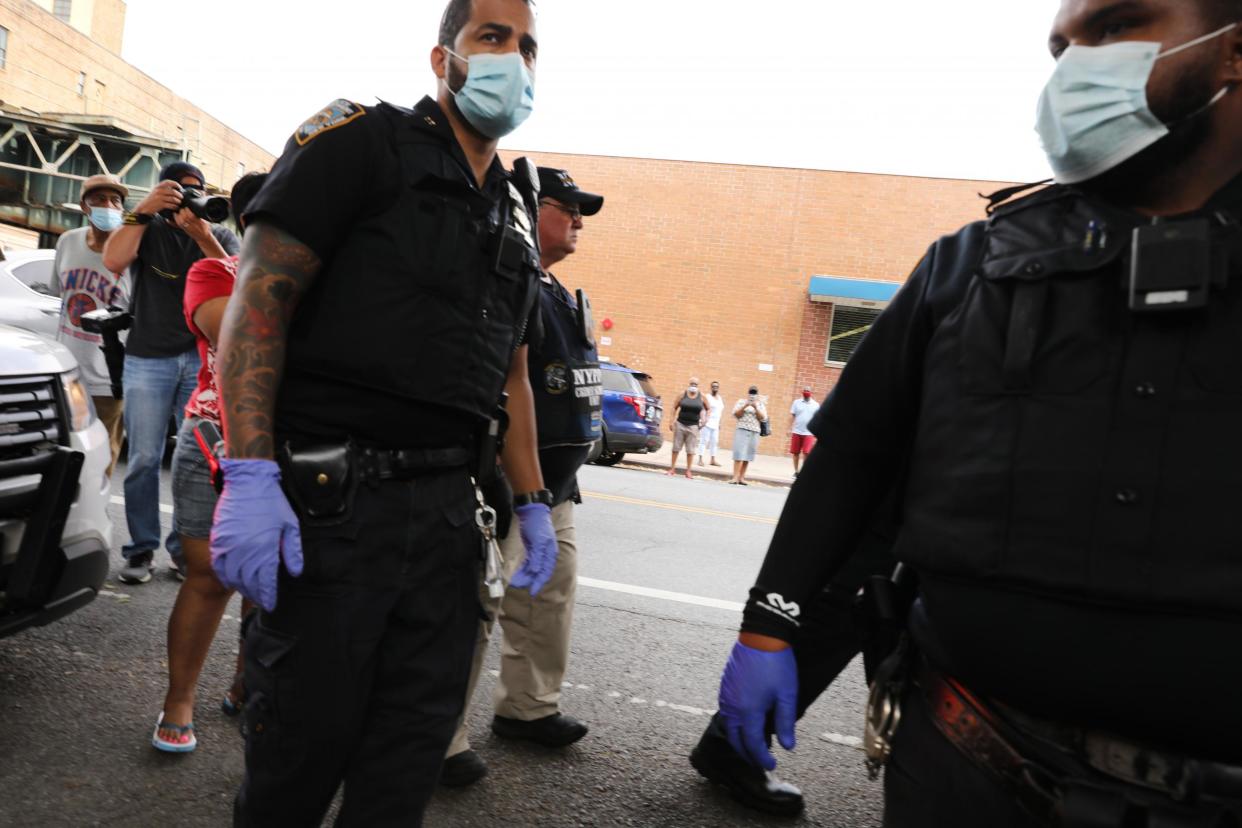New York mayor blames 'dislocation' caused by coronavirus for wave of shootings that left 10 dead and 54 injured over weekend

At least 10 people were killed among 64 shootings reported in New York City over the Fourth of July weekend, which saw a violent spree in several major cities still reeling from coronavirus infections and widespread protests against police violence.
For the first time since 2016, the city surpassed 400 shootings by mid-year. The New York Police Department reported that the city saw 528 shootings by the end of June, one of the most violent halves of the year in more than 20 years.
Last week, 18 people were murdered in New York.
At a Monday briefing, Mayor Bill De Blasio pointed to several factors for the weekend's sharp spike in violence, including the "dislocation that has happened over these last four months with the coronavirus".
Covid-19-related deaths have recently plummeted in the state, which emerged as an epicentre at the onset of the outbreak, leading to the deaths of more than 32,000 New Yorkers.
Hospitalisations from coronavirus also have dropped to their lowest point since 18 March, Governor Andrew Cuomo announced this week.
But officials are pointing to a beleaguered justice system, a looming recession and mass unemployment as cities brace for more summer violence.
"This is something that we have to double down on," Mayor De Blasio said of recent violence. "The fact that the court system is not working, the economy is not working, people have been penned up for months and months – so many issues underlying this challenge."
He has also called for increased support from church groups and nonprofit organisations.
Last month, the mayor and city officials ultimately agreed to cut $1 billion from the city's police department following demands from New Yorkers to end disproportionate spending among law enforcement, though a compromised budget didn't go far enough for many activists as urgent calls for police reform continue amid Black Lives Matter protests.
But police top brass have criticised the cuts, along with reform measures passed by state lawmakers and the city council to hold officers accountable for violence they commit.
Mayor De Blasio has not yet signed a package of police reform legislation, which includes a measure that would criminalise the use of chokeholds, following an outcry from police department bosses objecting to language that holds officers accountable for "sitting, kneeling or standing on the chest or back in a manner that compresses the diaphragm".
On Monday, police commissioner Dermot Shea called the measures "insane", claiming that "police officers should not have to worry more about getting arrested than the person with the gun that they're rolling around on the street with".
Chief of Crime Control Strategies Michael LiPetri told reporters on Monday that police "don't have the power" but did not elaborate on what police have lost with recent reforms.
The mayor has resisted calls from city officials and residents to oust the commissioner after he appeared to blame recent violence on bail reform efforts that he claimed had emptied "half the population of Rikers Island and put it onto the streets" during a recent radio interview.
"This leadership group has achieved so much for this city," Mayor De Blasio on Tuesday. "I chose Commissioner Shea, having known him and worked closely with him for six years. He is an extraordinary public servant."
Violence over Independence Day weekend prompted Georgia's governor to declare a state of emergency on Monday after 30 people were injured and five people, including an eight-year-old girl, were killed in Atlanta.
In Chicago, 87 people were shot between Thursday and Sunday night. Seventeen people were killed.
Read more
Georgia declares state of emergency after violent weekend
Seven-year-old girl among 17 killed and 89 shot in Chicago

